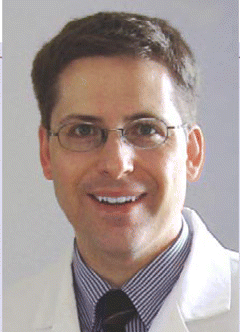Mary Talley Bowden, MD, an otolaryngologist–head and neck surgeon at Memorial Northwest Otolaryngology, a practice affiliated with Memorial Hermann Northwest Hospital in Houston, Tex., said her group has taken themselves off the ER call schedule. Their reasons were similar to those revealed in surveys across the United States. “At our hospital,” she explained, “it’s not a practice-builder for ENTs to take ER call. We see a lot of abscesses, bleeding, and facial trauma in our ER, but not your bread-and-butter sinus and ear cases. The types of cases we typically see are more conducive for training than for private practice.”
Explore This Issue
June 2006The affiliated hospital offered to pay Memorial Northwest Otolaryngology Medicaid reimbursement rates for uninsured patients seen in the ER. However, the hospital stipulated that patients would first have to apply for Medicaid. If coverage was denied, the hospital would reimburse the practice for the consultation. “But that would literally be four to six months after seeing the patient, and then it would be Medicaid rates,” Dr. Bowden pointed out. “We didn’t think that was worth it.”
‘Who wants to treat somebody who’s gotten nailed by a train? Because, frankly, you’re going to get paid more money if you work for the railway and you re-paint the train—without the liability.‘
Another disincentive was the higher liability risk of seeing patients in the ER, especially if they are uninsured, said Dr. Bowden. So far, Dr. Bowden has not seen any negative ramifications of taking herself off the on-call panel. She has privileges at five local hospitals, and still continues to do procedures at Memorial Hermann Northwest.
Inefficient at Best
Despite their removal from the hospital’s ER call panel, Dr. Bowden reports that she and her colleagues sometimes still get “roped into” taking ER call, as a primary care physician may admit an ER patient at the ER physician’s request and then call for an otolaryngology consult. “It’s a little better in that we aren’t required to leave our clinic to run over to the emergency room to stabilize patients,” she noted. But this practice can sometimes result in inappropriate hospital admissions, she said.
“As an emergency physician, I wish on some nights that taking call were a mandatory part of licensure for all specialists, but then, of course there would be other problems associated with that solution.” – Benjamin D. Vanlandingham, MD
Benjamin D. Vanlandingham, MD, Director of the Department of Emergency Medicine at St. Joseph Medical Center, a community hospital in Baltimore, Md., and a healthcare services researcher, has observed firsthand the inefficiencies of a fraying on-call coverage system. With no otolaryngologists on staff at St. Joseph Medical Center, Dr. Vanlandingham occasionally does require backup from an otolaryngologist. “Often, that backup could be care delivered in a delayed time frame, either in the office or at least with enough time to transfer to another hospital.”

Leave a Reply